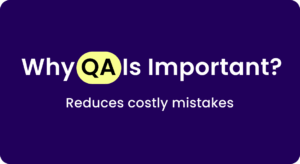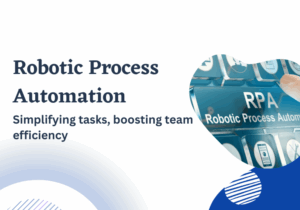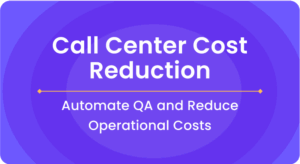We monitor 2% of calls and hope for the best.
Sound familiar?
That’s the reality for most QA teams today.
Manual audits. Random sampling. Endless spreadsheets.
And somehow, we’re still expected to improve CSAT, catch compliance slips, and coach agents effectively.
Here’s the problem: Traditional QA isn’t built for today’s call volumes or customer expectations.
This blog is not here to define QA.
It’s here to fix it.
This article is for:
- QA managers looking to streamline their call review process
- Contact center directors aiming to improve overall call quality
- Team leads who handle agent performance and feedback sessions
- Customer experience heads who want better CSAT without micromanaging
- Operations managers tracking compliance and coaching consistency
- Sales or support leaders trying to balance quality and speed
A. What exactly is QA in a call center?
QA (Quality Assurance) in a call center means checking how well your agents handle customer calls—and using that info to make them better.
What is it?
It’s the process of reviewing agent calls to measure things like tone, accuracy, compliance, empathy, and how well they followed scripts or handled objections.
Why does it matter?
Because one bad call can cost you a customer.
And one great call? It can earn you a loyal one.
QA helps protect your brand, boost customer satisfaction, and improve agent performance over time.
How does it work?
Calls are sampled → Evaluated against a scorecard → Feedback is shared → Coaching happens → Improvements follow (if the loop’s done right).
B. What’s broken in the call center QA today?
Traditional QA Isn’t Scalable Anymore
Let’s face it—most QA teams still rely on reviewing 1–2% of total calls.
That worked when volumes were low. But in 2025? Not a chance.
Your agents are handling hundreds of calls a week. How can reviewing a handful truly reflect performance?
It’s like checking one ingredient and assuming the whole recipe’s perfect.
1. Manual QA = High Effort, Low ROI
QA specialists spend hours listening, scoring, and documenting.
And what do you get?
- A few flagged calls
- Delayed feedback
- Agents repeating the same mistakes
You’re putting in effort. But the return? Minimal.
No one joins QA to play catch-up all day.
2. Why 2025 demands a fresh QA mindset
Call centers are evolving. So should QA
We’re talking about auto-scoring. Data-driven insights. Faster feedback loops.
Customers expect great service every time—not just 2% of the time.
And if you’re not adapting, your competition probably is.
It’s time to trade the clipboard for smarter tools and sharper processes. QA should be a growth engine, not a bottleneck.
C. A solid QA process (with actual steps)
Most blogs talk about QA like it’s a theory exam. But you don’t need fluff—you need a system you can actually run.
Here’s a clear, step-by-step QA process you can stack against your current setup and find quick wins.
1. Call sampling: Start smart, not random
Call sampling is the first and most critical step in your QA workflow.
Why? Because the calls you choose to evaluate set the tone for everything else—feedback, coaching, and improvement.
Sample wrong, and you waste time analyzing irrelevant data. Sample right, and you drive real change.
You can define sampling logic based on different criteria:
- Call duration (e.g., longer than 5 minutes)
- Call type (support, sales, escalation)
- Agent profile (new hires, low performers)
- Sentiment (positive or negative)
- Business outcomes (missed sale, churn risk, FCR)
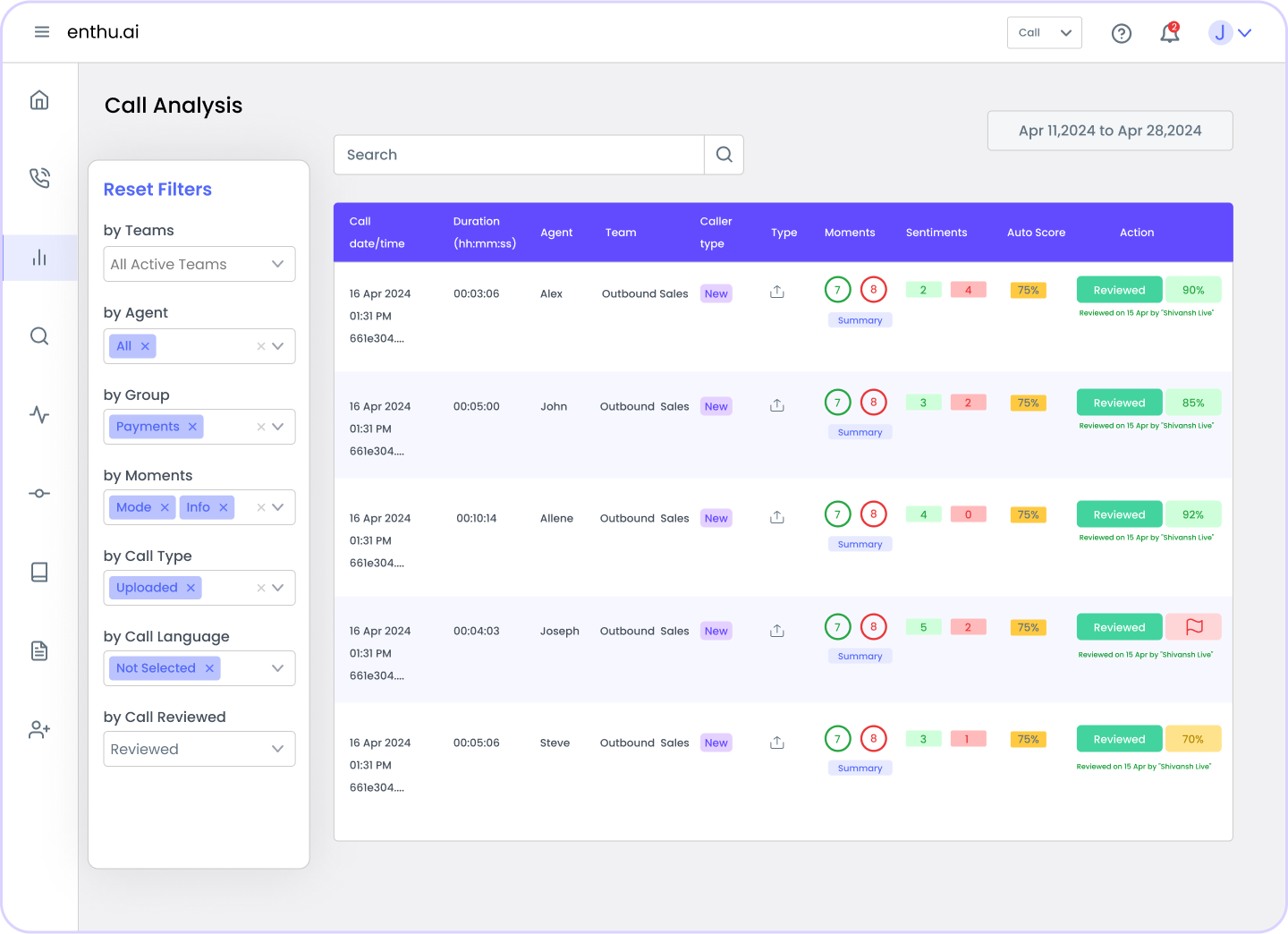
To apply this logic, teams use a mix of tools:
- Spreadsheets to filter and log calls
- ChatGPT to analyze transcripts with custom prompts
- Dialer/CRM filters to pull specific call types
- Auto QA to automate the sampling using NLP, sentiment analysis, and keywords
Technologies like Large Language Models (LLMs) and Natural Language Processing (NLP) help analyze calls faster and flag the right ones for review.
Call sampling sets the stage for focused, meaningful QA.
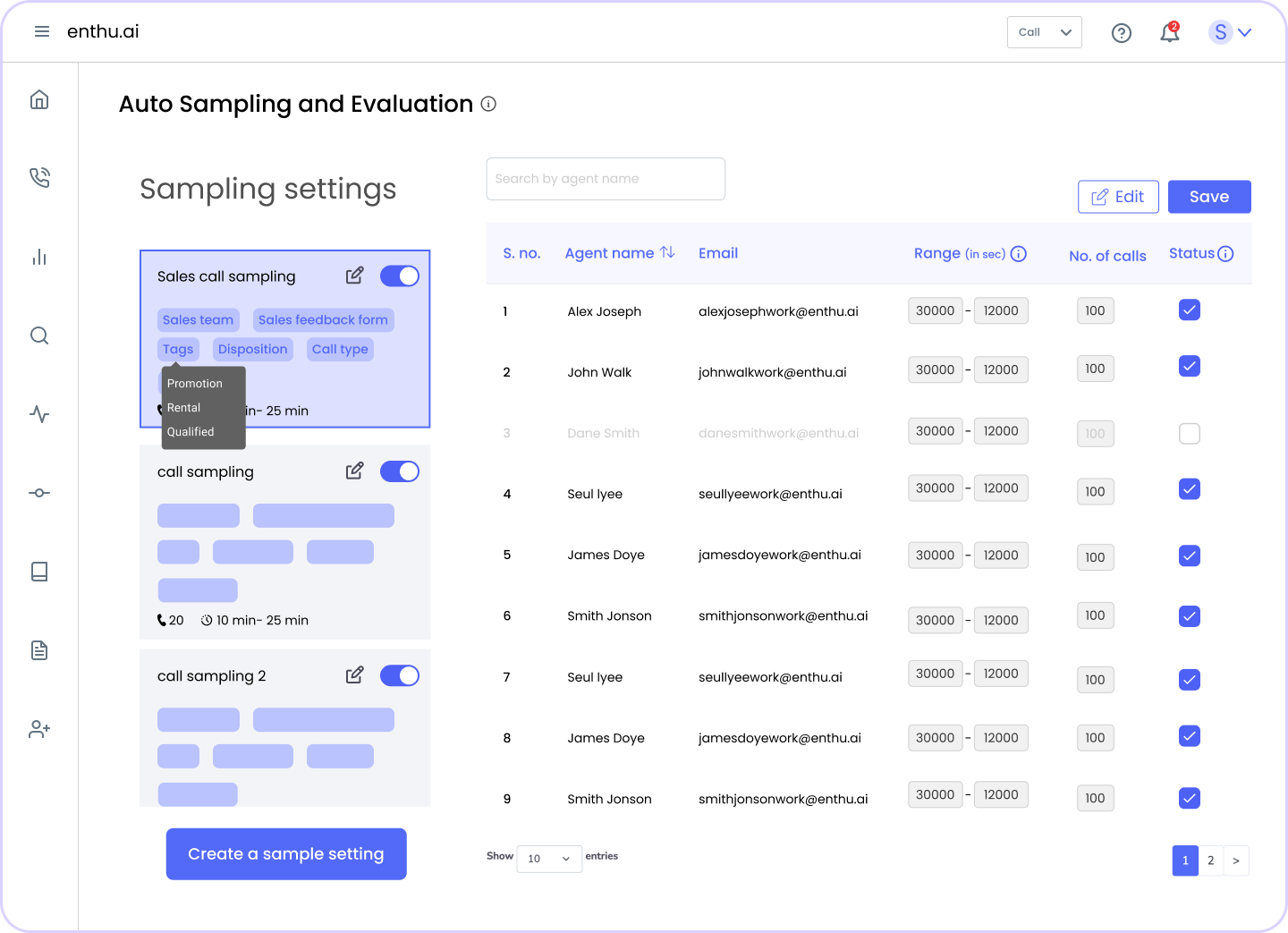
2. Call evaluation — Score what matters
Once calls are sampled, it’s time to evaluate them. This step is all about scoring the agent’s performance against a predefined rubric.
The scorecard usually includes:
- Soft skills (tone, empathy, listening)
- Compliance (disclosures, call script, legal lines)
- Process adherence (steps followed, accuracy)
- Customer outcome (issue resolved, next steps given)
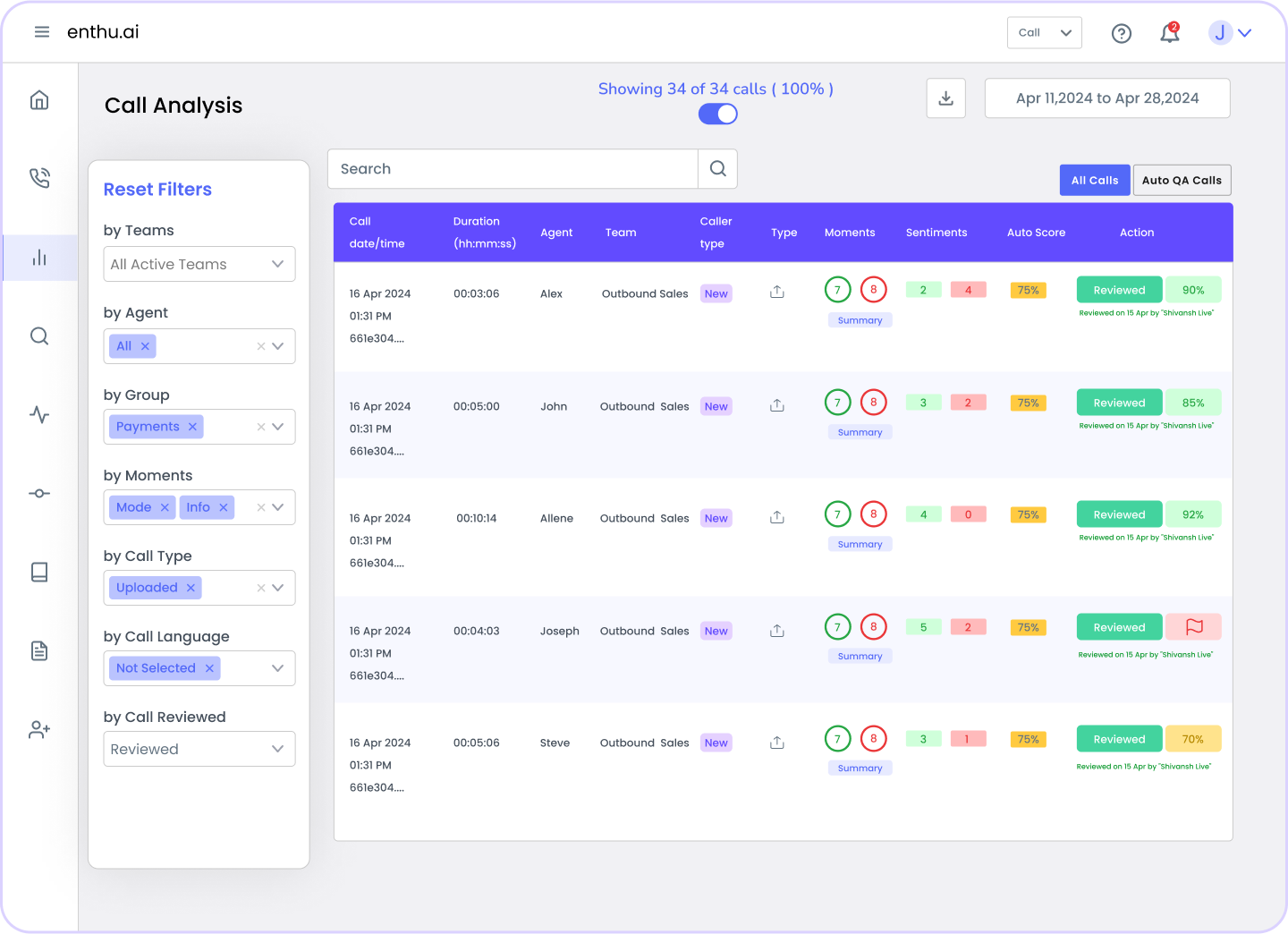
QA analysts listen to calls or review transcripts and assign scores to each area. Some teams use Excel or Google Sheets to manually log evaluations. Others use dedicated QA tools that auto-fill scores based on call context.
Technologies in use:
- Speech-to-text engines to transcribe calls
- LLMs to analyze tone, intent, and keywords
- Rule-based systems to auto-flag missed phrases
- Scoring automation to reduce manual effort
Want a deeper dive into building a solid QA scorecard? Check out this guide we wrote —packed with tips, examples, and free templates.
3. Feedback sharing — Timely & actionable
Scoring a call is just the start—what really drives change is the feedback that follows.
Feedback helps agents understand where they nailed it and where they need to step up.
The key? Timing and tone.
Feedback should be:
- Shared within 24–48 hours of evaluation
- Specific, not vague (“You missed the compliance line in intro”)
- Balanced—highlight wins along with misses
- Linked to scorecard criteria so agents know exactly what to fix
How to deliver it?
- 1:1 sessions: Live discussions give agents a chance to ask questions and clarify.
- Written summaries: Use Slack, email, or your QA tool to document everything. It builds accountability.
- In-app comments: Tools like Enthu.AI lets you add feedback right on the evaluated call.
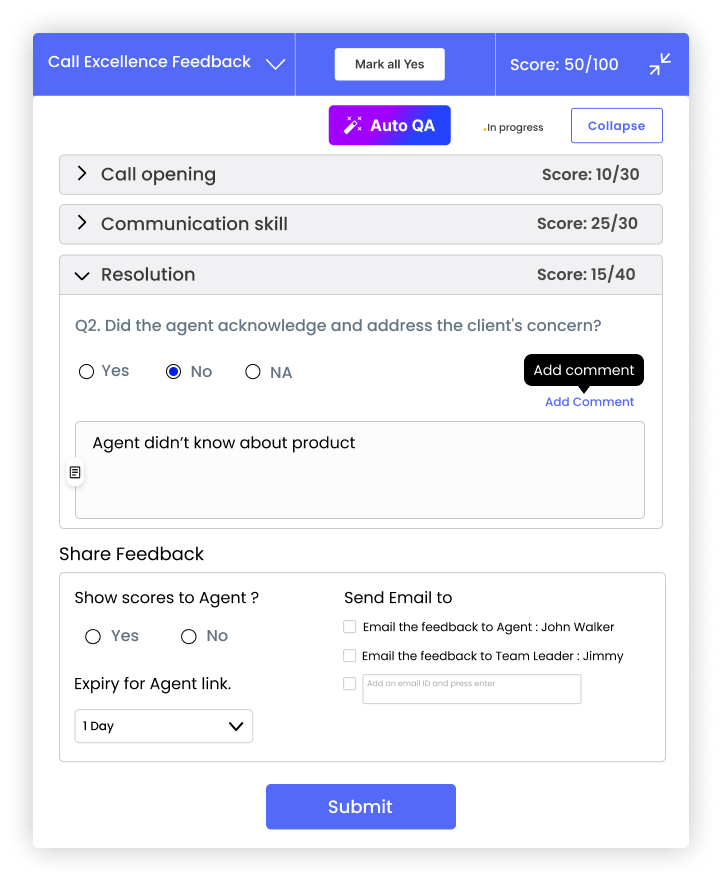
Tech that helps:
- CRM integrations: Auto-tag agents or managers when evaluations are complete.
- ChatGPT or LLMs: Use prompts to generate detailed feedback summaries based on QA scores.
- AI assistants: Tools that suggest tone-friendly, consistent feedback phrases.
When done right, feedback turns into a conversation—not a confrontation. That’s what makes it stick.
4. Coaching — Build skills, not scores
Coaching is where the magic happens. It’s not about fixing a score—it’s about helping agents grow.
It’s a focused session where you discuss feedback, role-play scenarios, and guide agents on how to handle calls better.
Types of Coaching Sessions:
- 1-on-1 coaching: Personalized, deep-dive sessions based on the agent’s call patterns.
- Group coaching: Useful for team-wide trends, like handling a new objection or compliance update.
- Call listening parties: Teams review good/bad calls together to share learnings.
How often should it happen?
- Weekly or biweekly for new agents
- Monthly for seasoned reps
- Ad hoc for performance dips or QA alerts
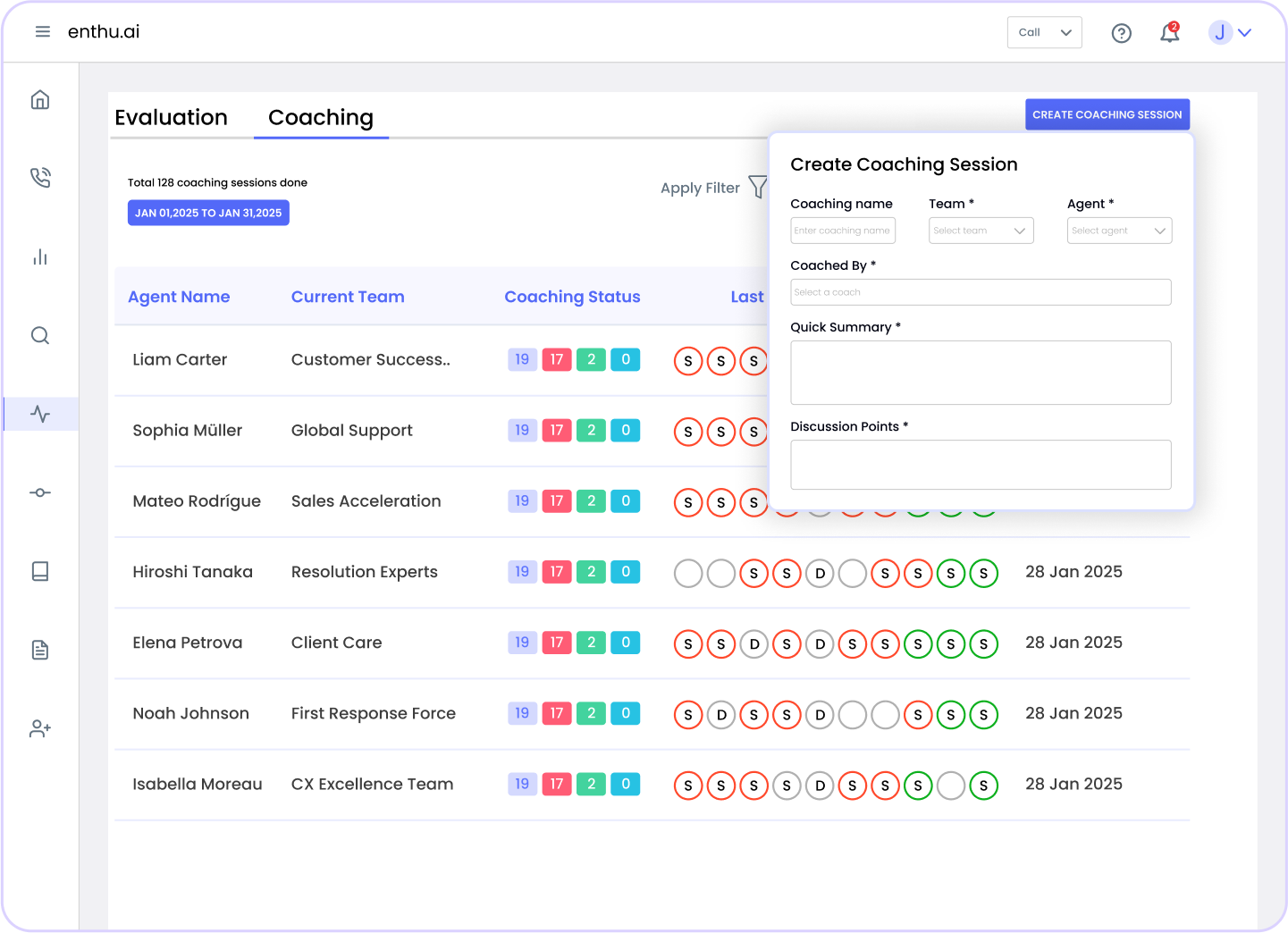
Coaching tools & tech:
- Call libraries: Save great vs poor calls to use as training examples.
- Coaching dashboards: Track topics covered, outcomes, and follow-ups.
- ChatGPT: Create custom role-play scripts or quiz questions based on feedback themes.
Always end with clear action steps. Like: “Focus on building rapport in the first 30 seconds. Let’s review again next week.”
If you’re using Enthu.AI, you can track coaching tasks, link them to actual calls, and see how agent performance shifts over time—all from one dashboard.
Coaching isn’t about catching mistakes—it’s about building confidence, skill, and consistency.
5. Improvement loop — Keep getting better
Great QA doesn’t stop at feedback—it creates a loop that drives real growth.
What’s the improvement loop?
It’s the system that connects all your QA steps into an ongoing cycle:
Calls → Evaluations → Feedback → Coaching → Measurable Improvement
Every step should feed into the next. That’s how you spot trends, fix issues faster, and build a high-performing team.
What to track in your loop:
- Agent score trends (by category: compliance, soft skills, empathy)
- Feedback acknowledgment (Are agents applying what they learned?)
- Coaching effectiveness (Did performance improve post-session?)
- Quality goals (like fewer repeat calls or faster resolutions)
Tech that helps:
- QA dashboards: Visualize trends, filter by agent/team, spot gaps
- Speech analytics tools: Pull insights from thousands of calls
- LLMs: Track coaching actions, performance shifts & conversation context
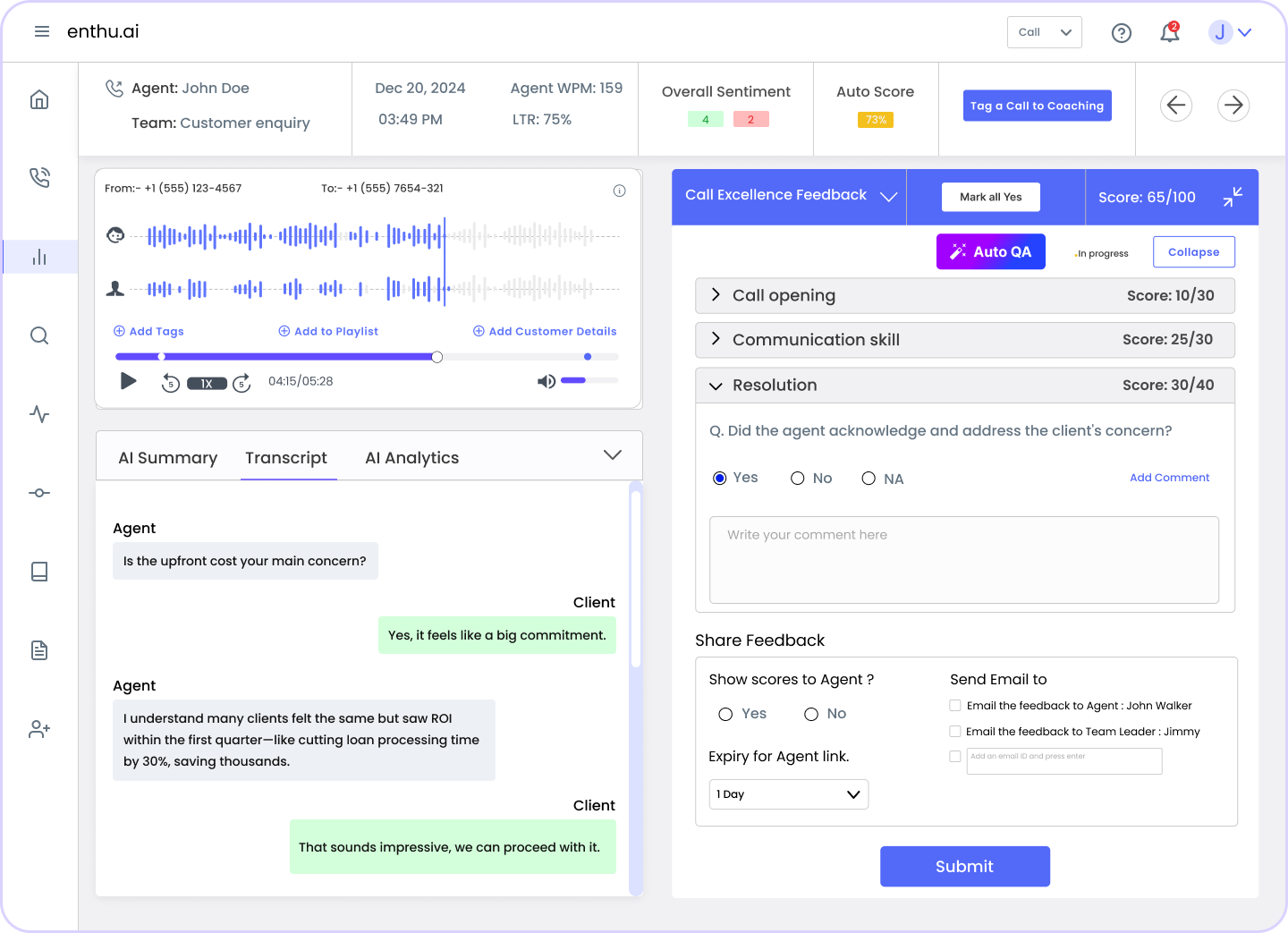
It’s not just QA anymore—it’s continuous performance growth made easy.
D. What Does “Good QA” Look Like?
If you don’t know what “good” looks like, how will you ever get there?
That’s the real challenge for most QA teams—measuring success beyond just a scorecard.
Most call centers aim for an 85% QA score or higher. This means agents are generally hitting key standards.
If you’re above 90%, great—you’re running a tight ship.
But if you’re regularly under 80%, it’s time to dig deeper. Are agents unclear on expectations?
Is the feedback loop broken?
Pass/Fail Thresholds
The industry norm is a 70–75% pass threshold.
But in regulated industries like finance or healthcare, you might need 100% accuracy on compliance sections—no exceptions.
Top Agent Patterns
Your best reps usually:
- Handle objections like pros
- Balance empathy with efficiency
- Stick to scripts without sounding robotic
They’re not just following rules—they’re creating great customer moments.
Want to get more out of your coaching sessions? Read this quick guide on how to run coaching that actually drives performance.
E. Call Center QA Toolkit That Actually Works
You don’t need a giant tech stack to get started with QA.
You just need a few solid tools that do the job right. Here’s what every QA manager should have in their toolkit:
1. Editable Scorecards
Your QA scorecard should be flexible. Different teams = different metrics. Start with a basic template—cover compliance, soft skills, product knowledge, and wrap-up behavior.
(Google Sheet Preview)
| Metric | Weight (%) | Agent Score (1–5) | Comments |
| Greeting & Call Opening | 10 | ||
| Problem Understanding | 20 | ||
| Resolution Accuracy | 25 | ||
| Compliance Adherence | 15 | ||
| Empathy & Soft Skills | 15 | ||
| Call Wrap-up & Summary | 10 | ||
| Total Score | 100 |
Build, test, and adjust your scorecards in minutes with Enthu.AI.
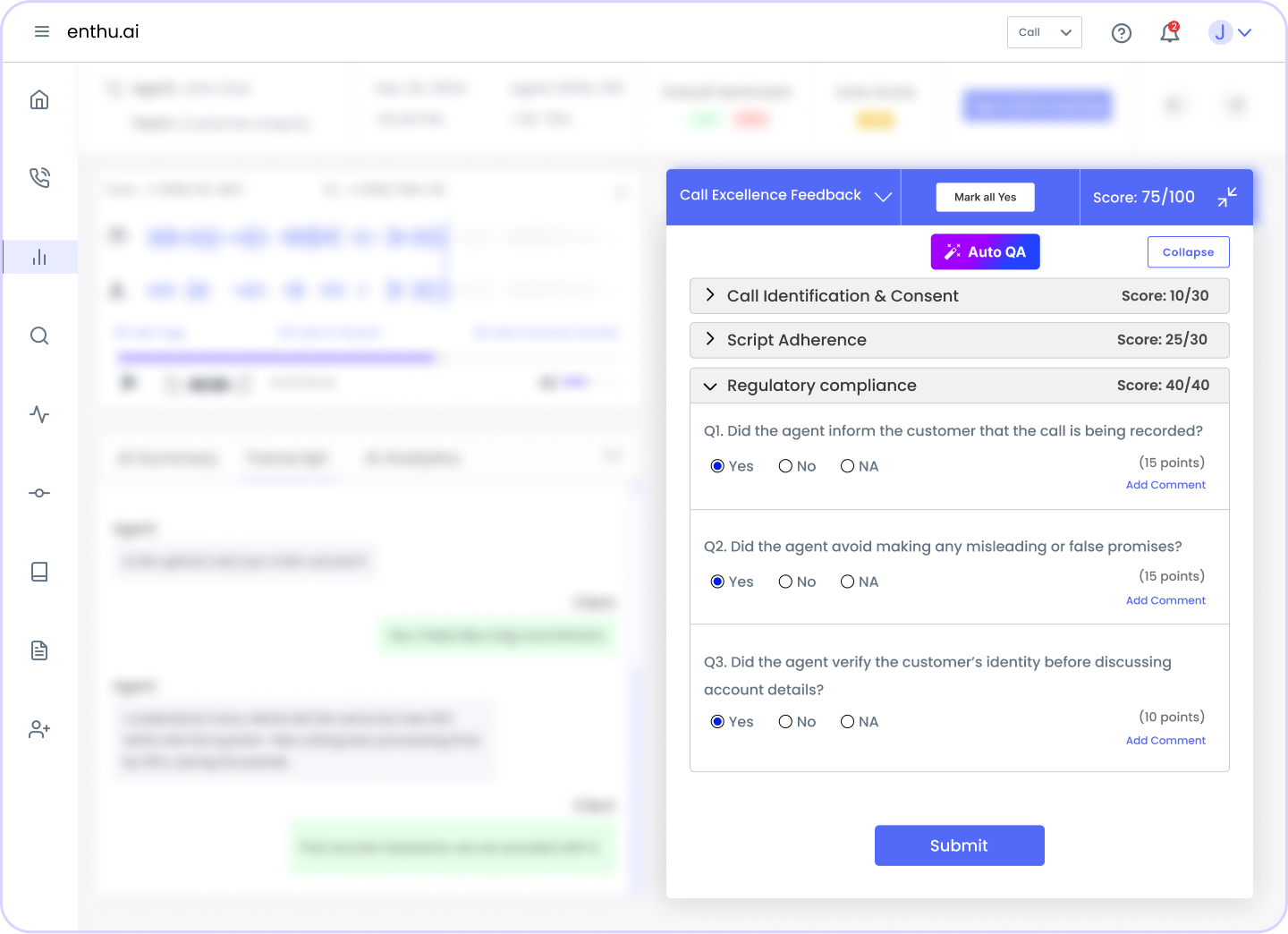
2. Feedback Scripts
Giving feedback is an art. You want to coach, not criticize.
Create a few ready-to-use templates for different scenarios—low empathy, script deviation, compliance miss, etc. It helps managers stay consistent and agents feel supported.
Here are few script examples:
- Scenario: The Agent missed a critical compliance step.
- Feedback Script: “Hey [Agent Name], I noticed we skipped [specific compliance step] on the last few calls. I know it can happen, especially when the customer is pushing for fast answers. But this is non-negotiable. Let’s go over how to make this part feel natural, not robotic.”
- Scenario: Great empathy, but resolution was weak.
- Feedback Script:“You nailed the empathy in that call—seriously, well done. But we stumbled a bit on the solution. Let’s talk through a better way to close the loop next time.”
3. Call Calibration Checklist
Use this to keep QA scores fair across the team. Make sure all evaluators look for the same stuff. Calibrate monthly to avoid bias creeping in.
Checklist can include sample calls, evaluation alignment meetings, reviewer comments, and scorecard update notes.
Monthly Calibration Flow:
- Select 5–10 random calls across different reviewers
- Evaluate using the same scorecard
- Compare scoring differences
- Discuss gaps in interpretation
- Align on revised scoring notes
- Update the team on changes
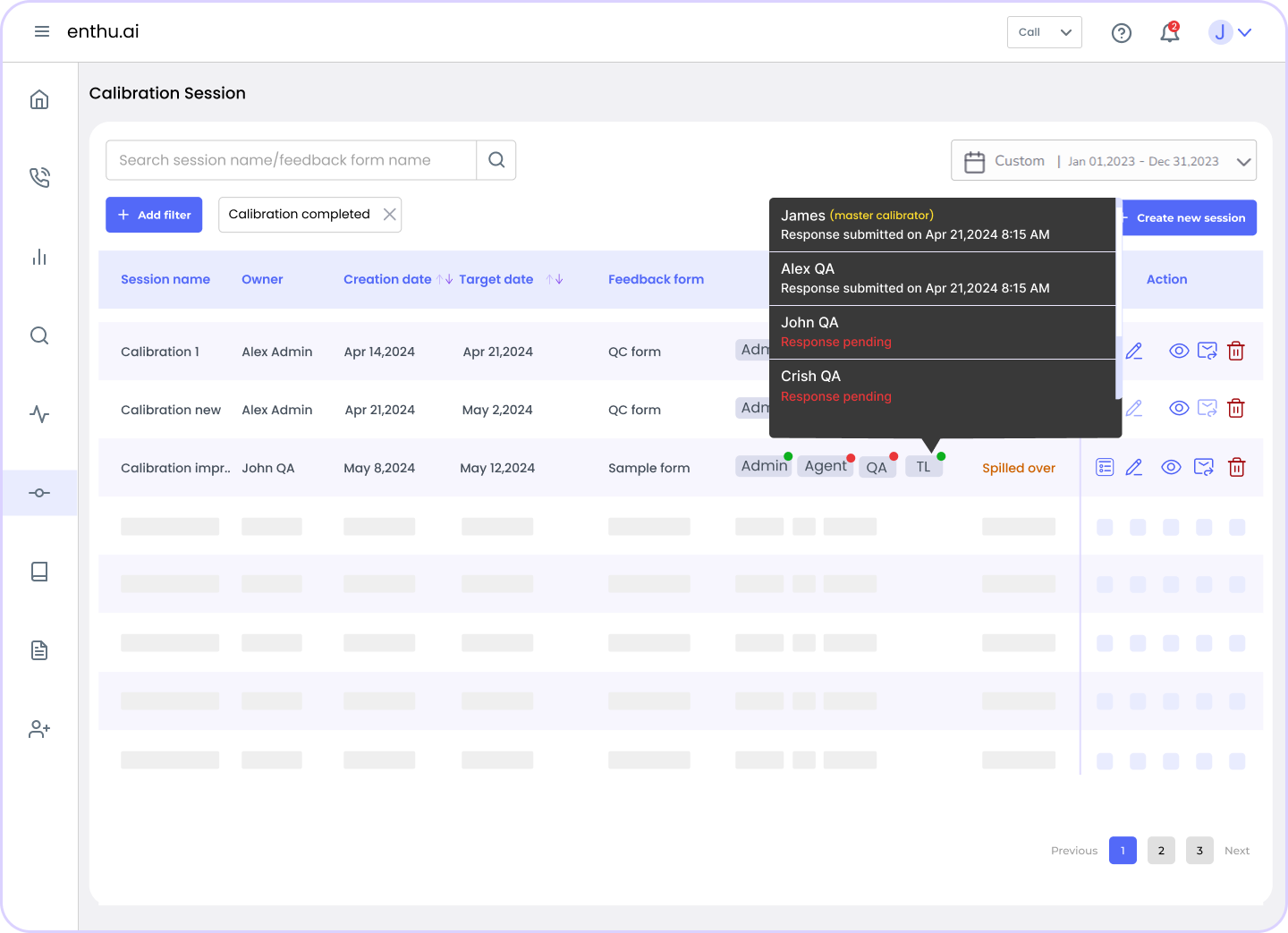
4. Dashboard & Reporting Templates
Don’t drown in data. Set up a simple reporting template that shows agent trends, score distributions, coaching impact, and compliance risk.
If you’re using Enthu.AI, most of these insights are already built-in—no need to wrestle with spreadsheets.
F. Let’s Talk Business Impact: QA Isn’t Just About Scores
Let’s be real—QA isn’t just about hitting 80% on a scorecard.
It’s about how those scores translate into business wins.
Start with CSAT (Customer Satisfaction). Agents who follow quality guidelines tend to deliver better customer experiences. And better experiences = higher CSAT.
Next is retention. A good call can turn a frustrated customer into a loyal one. Consistent QA helps make that happen across the board.
First Call Resolution (FCR)? QA plays a huge role here. When agents are coached to solve problems the first time around, repeat calls drop. That saves time and keeps customers happy.
And don’t forget escalations. QA helps flag risky behavior early—before things explode. Fewer angry customers. Fewer fire drills.
Then there’s the big picture—operations. QA data shows you which processes work, which ones don’t, and where to invest in training or tech. It takes the guesswork out of decision-making.
Bottom line? QA isn’t just a support function.
It’s a business driver.
The better your QA, the stronger your results across the board.
G. One Quick Win You Can Try Today
Start tagging just one thing: tone.
You don’t need permission, a budget, or a fancy tool to do this.
Open up a few recent call transcripts (even just 5–10).
Scan them for emotional tone—was the agent calm? Rushed? Defensive? Warm?
Tag each one with a quick note like “empathetic,” “robotic,” “defensive,” “or neutral.”
Now, step back and ask:
- Are certain agents always neutral or negative?
- Is the tone better on shorter calls?
- Do tough customers trigger poor tone?
That’s your first insight.
No dashboards, no tech. Just pattern-spotting.
If you’re using Enthu.AI, enable sentiment detection to auto-tag emotional tone across 100% of your calls—no need to read line-by-line. You’ll spot opportunities in minutes, not weeks.
Conclusion
If you’re still sampling 2% of calls and calling it “quality assurance,” you’re not just missing insights—you’re missing the point.
Today’s call centers demand scale, speed, and strategy.
Manual QA gives you none of those.
It’s time-consuming, inconsistent, and too late to fix what’s already broken.
Auto QA isn’t a nice-to-have anymore. It’s the foundation of high-performing, compliant, and scalable operations.
It scores every conversation, flags what matters, and turns your QA from reactive to proactive.
The question isn’t if you should move to Auto QA.
It’s how long you’re willing to fall behind before you do.
FAQs
1. How is quality assurance measured in a call center?
Call centers are monitored by numerous quality assurance metrics to ensure that customer needs are being met. Common quality assurance metrics include: Average Speed of Answering (ASA), First-Call Resolution (FCR), Average Handle Time (AHT), Customer Satisfaction Score (CSAT), Net Promoter Score (NPS), and Customer Effort Score (CES).
2. How can I improve my call center performance?
Call center performance can improve by giving agents the training they need, and then continuously monitoring, evaluating and coaching them to perform better.
3. How can I improve my call monitoring?
Call monitoring can certainly be a chore but it can be improved by having the right call monitoring software like ENTHU.AI or you can opt for a traditional method of hiring a QA manager.
4. What is call center quality assurance?
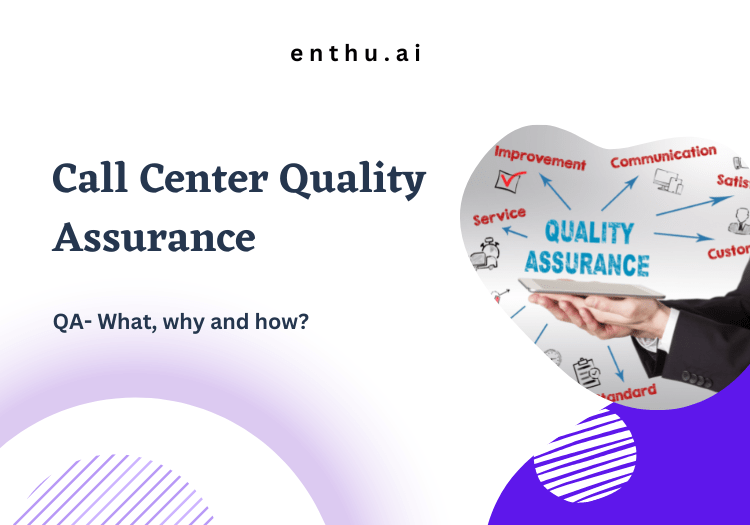

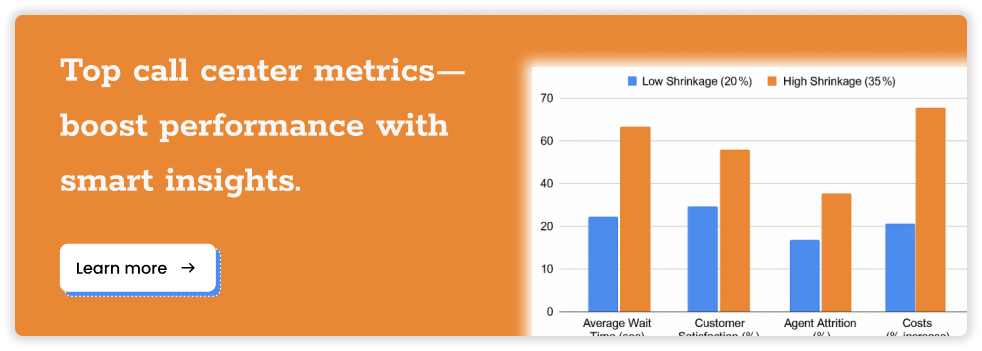
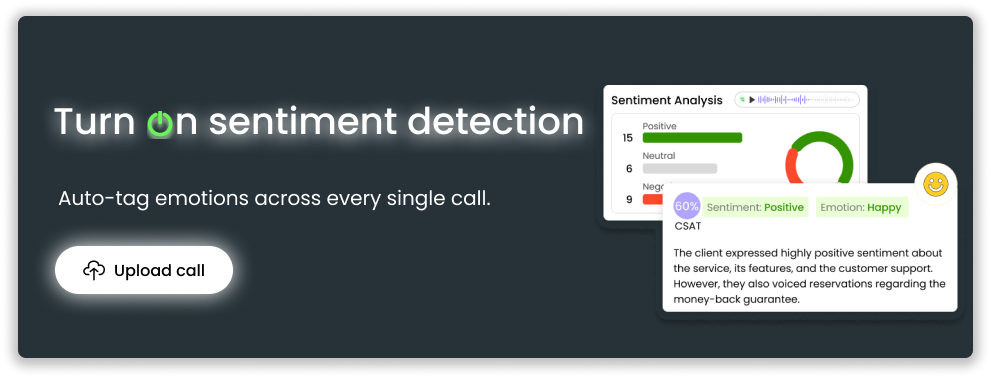


 On this page
On this page
